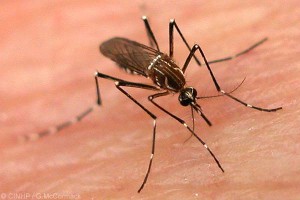
Nassau, Bahamas – Breaking news coming to our news desk early this morning confirms a young woman has died after being diagnosed with dengue fever.
Officials confirmed earlier this week there were 16 reported cases of the disease in the capital and reported that fogging exercises throughout the island had continued, however, health officials failed to confirm or deny the reported death, which occurred on Tuesday.
BP has learnt the young woman, who is identified as, Kayla Farrington, is the mother of three and is in her late twenties. She had recently graduated with honours at a College in the Caribbean an had recently returned back to the capital to practice in medicine.
Health officials across the region are concerned about the near epidemic level of mosquito-borne dengue fever, saying it could get more severe as the rainy season progresses.
The high number of cases that have caused dozens of deaths across the area are being blamed on warmer than usual weather and an unusually early rainy season, which has, in turn, caused an explosion in the mosquito population, the Associated Press reported this week.
Sources in the OPM told BP, “We are monitoring the situation and we are attempting to increase fogging exercises to prevent the spread of the disease here in the capital.”
Officials are tight-lipped on the women’s death, but have increased advertising and promotions on prevention and what signs to look for.
The Parliament met yesterday, however, no public pronouncements were presented on the near pandemic. Dr. Hubert Minnis we are told is out of the country, with no update as to where the minister travels have taken him. Tommy Turnquest told the House the Minister of Health was on leave and said nothing further to Parliamentarians.
There is also a fear that the outbreak might spread to the United States. Dengue, once thought gone from the U.S., has been suspected in a case in Miami. Though test results came back negative, a recent study showed that five percent of people living in Key West had been exposed to the disease, which can cause fever, headaches and extreme muscle pain.
A relative of the young girl told BP, “I am finding it hard to believe we let dengue kill someone…they don’t fog the areas anymore? This is sad a shocking.”
The young woman is said to have begin her practise in pharmacy early this year.








Well, what is that supposed to mean? All I am doing is making people aware that there is no cover up or anything going on…it saddens me that something like this is being published and it’s not true. It riles people up when it’s not necessary.
I knew this young lady and I know her family. She did not die from dengue fever. It was a misdiagnosis in the early stages of a rare disease that presents itself with common symptoms. She is sorely missed by her husband and loved ones…
YEAH YEAH YEAH as the British would say… Keep reading…
BP
Public Advisory on Dengue Fever
By Bahamas Department of Public Health and the Ministry of Health
Sept. 23, 2010 – 5:31:46 PM
The Bahamas – There has been significant increase in dengue activity throughout the Caribbean region and the Region of the Americas with outbreaks reported from Barbados, Grenada, Puerto Rico, Trinidad and Tobago, and the French Territories.
The Department of Public Health has confirmed that there have been five laboratory confirmed cases to date and more than twenty persons have been investigated for dengue fever in The Bahamas. The Department is working closely with the Department of Environmental Health Services to prevent and control the spread of dengue fever, a viral infection which is transmitted through the bite of an infected Aedes aegypti mosquito.
Symptoms of dengue fever include fever, muscle and joint pains, excessive tiredness, headache and pain behind the eyes. Nausea and vomiting may also occur. A more severe form of dengue fever, Dengue Haemorrhagic Fever, presents with episodes of bleeding.
There is no vaccine to prevent dengue fever and treatment is given to lessen the symptoms of the infection. The majority of persons recover within five to fourteen days.
The public is advised to seek medical attention at your nearest clinic if you experience any of these symptoms.
The Department of Public Health and the Ministry of Health wish to advise the public to:
(1) avoid mosquito bites by wearing protective clothing and applying insect repellent to exposed areas;
(2) use safe household insecticides indoors;
(3) where possible, have intact window and door screens; and
(4) remove all breeding sites that collect water, such as old tires, flower vases, planters and garbage.
For further information contact the Surveillance Unit at the Department Of Public Health at 502-4790 and 502 4776.
Comments are closed.